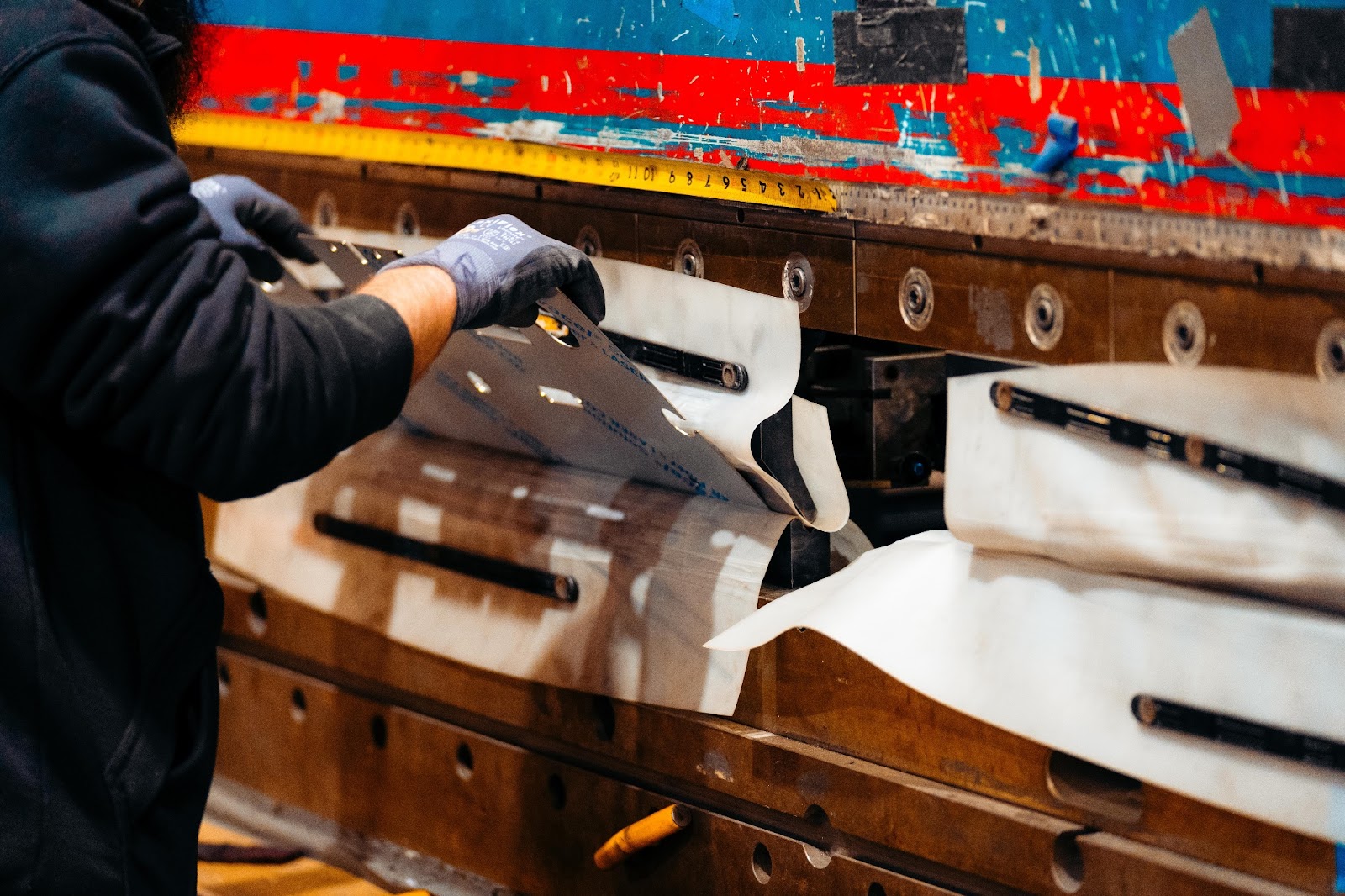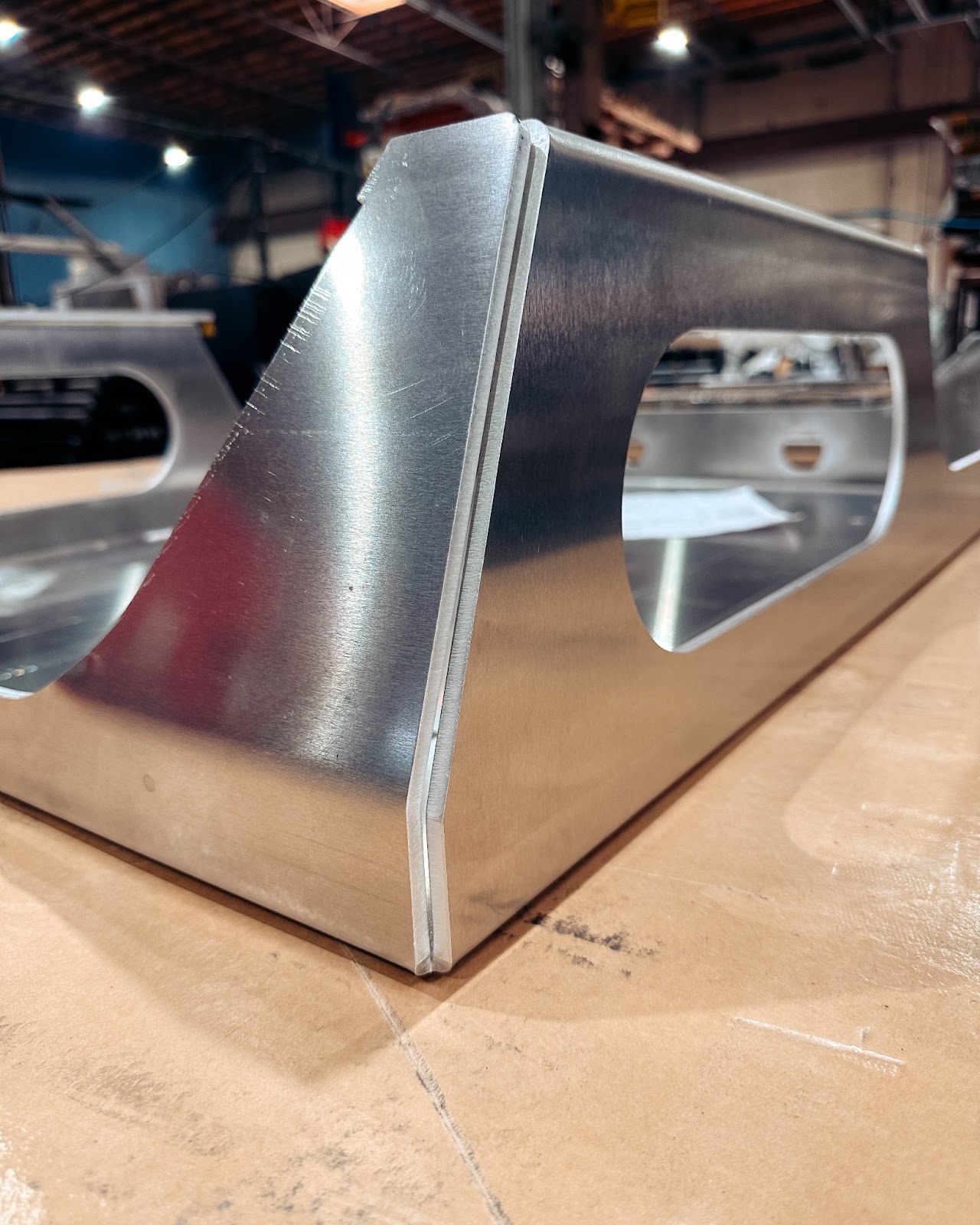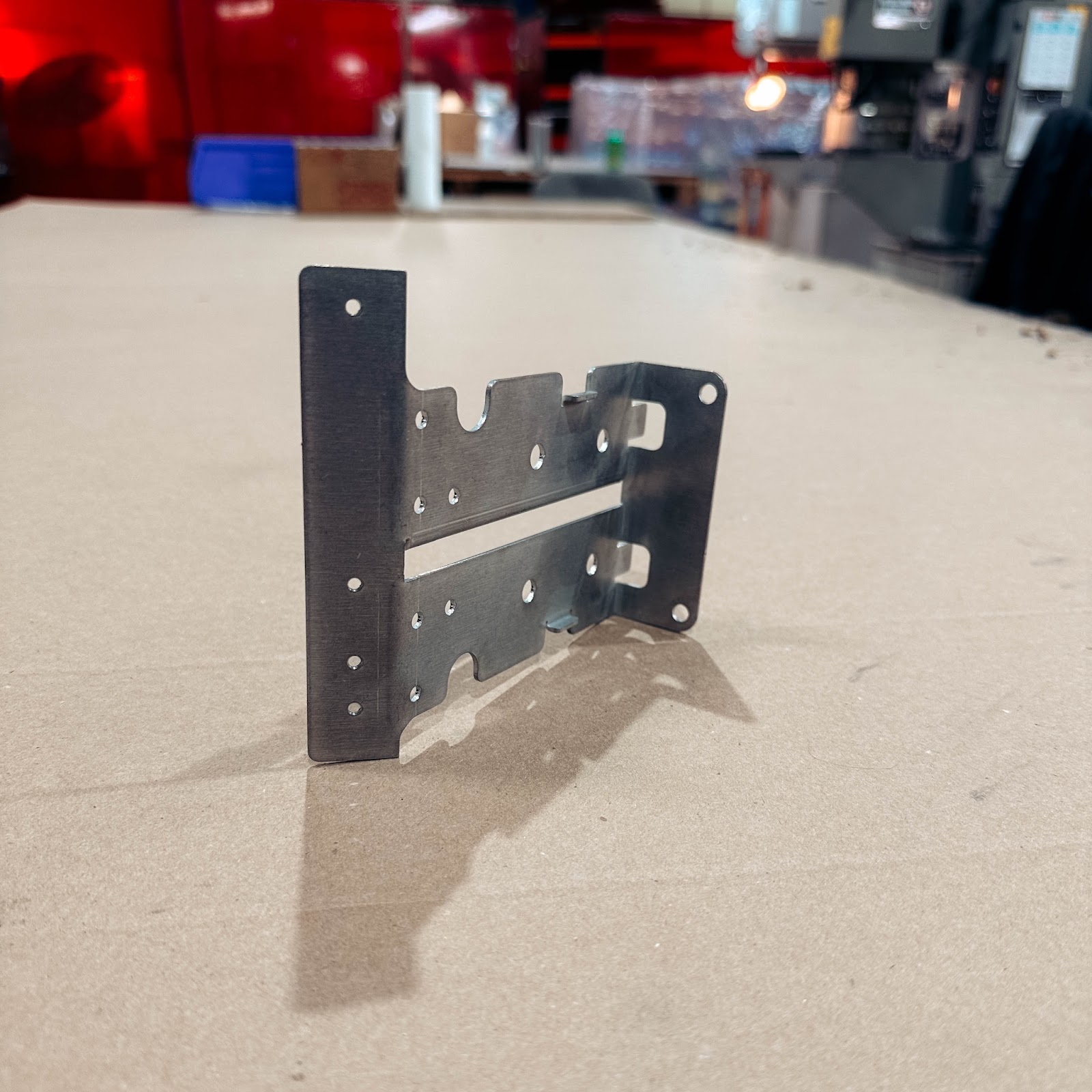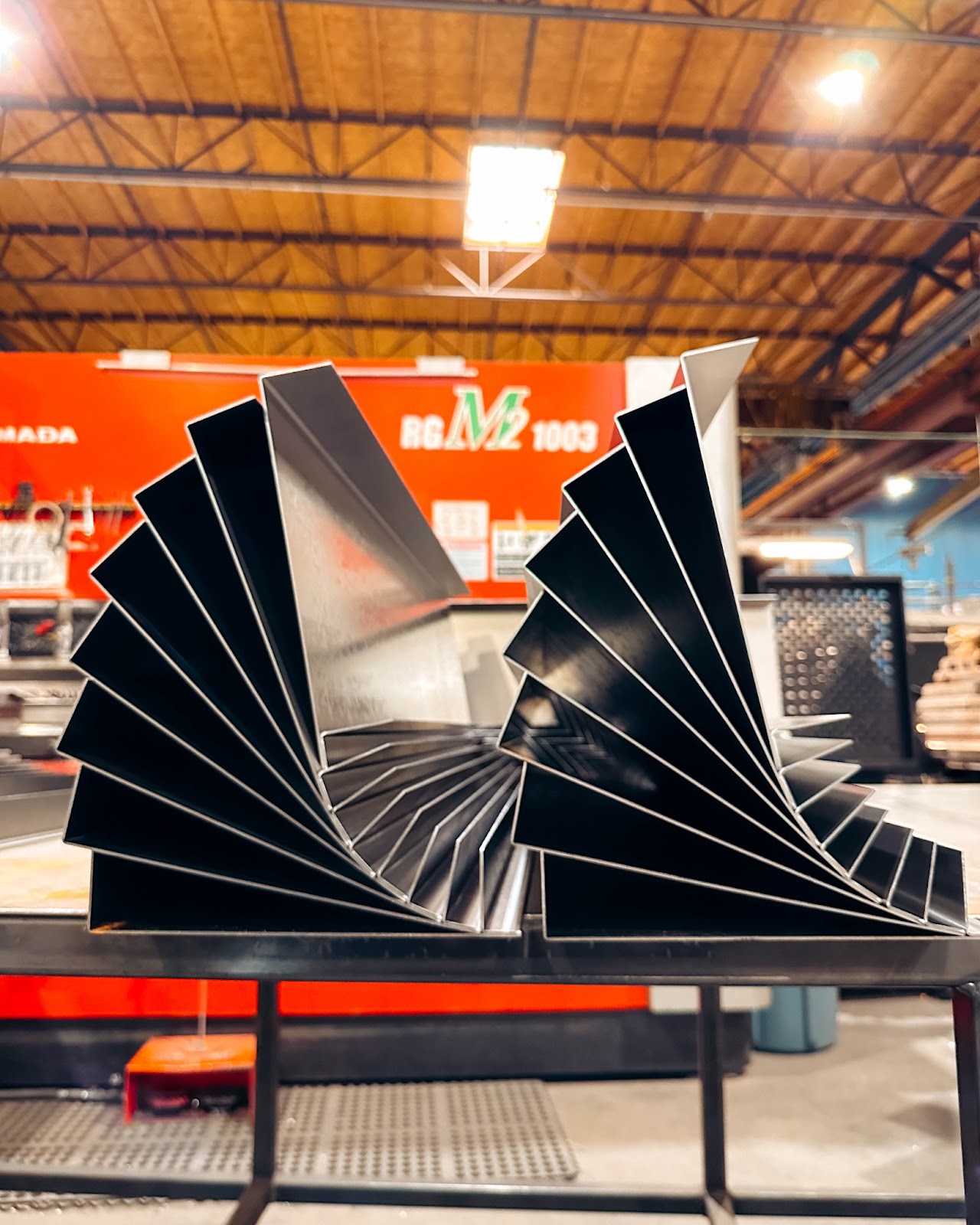
Forming in Metal Fabrication: Quality with NaiMor
Forming in Metal Fabrication: Quality with NaiMor
Metal fabrication is an essential process in the manufacturing industry, with various techniques and materials utilized to create a wide range of products. Forming is a crucial part of metal fabrication, where metal sheets are bent, shaped, or stretched to achieve the desired form.
In this article, we will discuss the characteristics of different metals used in forming, and how to determine the right tonnage for forming a part. We will also discuss the factors to consider when designing a formed part for manufacturability and why NaiMor is the best choice for manufacturing formed parts.
Forming Technique at NaiMor

At NaiMor, we focus on air forming, a versatile and cost-effective method that allows us to create a wide range of forms and shapes. It involves bending the metal sheet by pressing it against a die with a punch. The metal is not forced entirely into the die, allowing for greater flexibility in the bending process. Making it suitable for various applications.
Materials for Forming
NaiMor is well-versed in working with forming a variety of materials to suit the specific requirements of our clients. We also work regularly with common types of metals. Our material forming expertise includes:
- Stainless Steel: Known for its corrosion resistance and strength, stainless steel is an ideal material for applications requiring durability and a high-quality finish. However, it can be more challenging to form due to its high strength and work-hardening rate.
- Aluminum: This lightweight and corrosion-resistant metal is easy to form, making it popular in industries such as aerospace and automotive. Its low density and good thermal conductivity contribute to its wide range of applications.
- Steel: Steel is a versatile and cost-effective material with high strength and durability. It is widely used in structural applications and can be easily formed through various methods. However, it is prone to corrosion and may require additional treatments to improve its resistance.
- Known for its high electrical and thermal conductivity, copper is used in various applications, including electrical components and heat exchangers. NaiMor's skilled team can form copper to meet the needs of diverse projects, maintaining its functional properties.
- Brass: An alloy of copper and zinc, offers excellent corrosion resistance, machinability, and aesthetics. NaiMor's expertise in forming brass ensures that clients benefit from this material's unique properties for a wide range of applications.
- Plastics: In addition to metal forming, NaiMor also offers forming services for plastics, providing a lightweight and cost-effective alternative for various industries.

Determining the Right Tonnage for Forming a Part
To determine the required tonnage for forming a part, consider factors such as material thickness, bend length, and material properties. The general formula for calculating the required tonnage is:
Tonnage = (Material Thickness × Bend Length × Material Factor) / Die Opening Width
Material factors vary depending on the specific metal used and can be found in material reference charts.
Designing a Formed Part for Manufacturability
When designing a formed part, consider the following factors to ensure manufacturability:
- Material selection: Choose a material that suits the desired properties, formability, and cost requirements.
- Bend radius: Opt for larger bend radii to reduce the likelihood of cracking and improve formability.
- Flange lengths: Ensure adequate flange lengths to allow proper tooling clearance and to minimize distortion.
- Grain direction: Align bends with the grain direction to reduce the risk of fractures and improve part strength.
- Tolerances: Specify tolerances that are appropriate for the forming process and the material used.
Why Choose NaiMor for Your Metal Forming Needs
When you partner with NaiMor for your metal forming projects, you gain access to an experienced team, state-of-the-art equipment, and a commitment to quality. We have 20 years of custom metal fabrication. Here's why NaiMor is the best choice for your metal forming needs:
- Expertise: Our team has extensive experience working with a wide range of materials and forming techniques, ensuring that your project is in capable hands.
- One Stop Shop: NaiMor does material acquisition, cutting (flat & tube), forming, welding, hardware insertion, machining, and assembly. You wont need to go to multiple shops to get one job done.
- Quality: NaiMor is dedicated to maintaining the highest standards of quality, ensuring that your formed parts meet or exceed your expectations.
- Customization: We understand that each project is unique and work closely with our clients to develop tailored solutions that meet their specific needs.
- Efficiency: With a focus on lean manufacturing processes and a commitment to continuous improvement, Naimor delivers your formed parts on time and within budget.
- Customer Service: We pride ourselves on building lasting relationships with our clients and providing exceptional customer service throughout the project lifecycle. We love being a fabrication shop!


Check out our instagram for many more photos and videos of our work as metal fabricators!
Or




